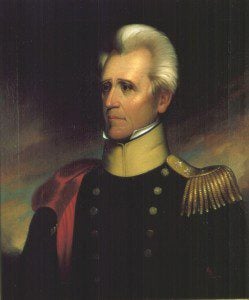For verily I say unto you, the time has come, and is now at hand; and behold, and lo, it must needs be that there be an organization of my people, in regulating and establishing the affairs of the storehouse for the poor of my people, both in this place and in the land of Zion.
For a permanent and everlasting establishment and order unto my church, to advance the cause, which ye have espoused, to the salvation of man, and to the glory of your Father who is in heaven;
That you may be equal in the bonds of heavenly things, yea, and earthly things also, for the obtaining of heavenly things.
For if ye are not equal in earthly things ye cannot be equal in obtaining heavenly things.
Doctrine and Covenants 78:3-6
“You didn’t build that.” This one-line quip of Barack Obama has received plenty of attention. The topic of pundit television shows, talk radio, and a plethora of made-for-Facebook posters, that brief sentence has struck a nerve amongst the American ideal, based on the myths of Andrew Carnegie and Donald Trump, of self-made man. In this country, our national myth declares, one’s potential is only limited by desire and effort. This is a narrative founded by Benjamin Franklin, sacralized by the Transcendentalists, and crystalized by Henry Ford. This particularly “American” mind-set has also been adopted as a core of Mormon culture in the 20th and 21st centuries: the hard-working, forward-moving, and success-attaining image so poignantly represented in Mitt Romney.
Yet such an individualistic refrain has an unusually communal religious pedigree. The verses quoted in the epigraph, which represent a large thrust of Joseph Smith’s expanded scripture, were part of a revelation Smith received in March of 1832. Prior to that, he had previously received a handful of revelations outlining an economic worldview hinged upon communal sharing, principles that were referred to as the Law of Consecration. The basic premise was simple: all possessions, talents, and any other form of ownership are due to divine appointment, and all humans were mere stewards working toward communal stability. To believe in private ownership was to overlook the hand of Providence, and to assume personal precedence over communal need was a severe sin.
The God of early Mormonism was forthright and bold in denouncing the individualistic culture of the age: “every man walketh in his own way, and after the image of his own god,” an earlier revelation declared, “whose image is in the likeness of the world, and whose substance is that of an idol, which waxeth old and shall perish in Babylon” (D&C 1:16). Even in the Book of Mormon, a prominent “Anti-Christ” was condemned for claiming that “every man fared in this life according to the management of the creature; therefore every man prospered according to his genius, and that every man conquered according to his strength” (Alma 30:17). These foils were contrasted with the followers of God, disciples devoted to placing the community’s needs over their own accomplishments.
These ideals were more than just abstract notions without practical application, but introduced a long and dynamic Mormon tradition of fighting against individualism. Around the same time these divine commands were received, William W. Phelps, ecclesiastical leader in the settlement of Jackson County, Missouri, and editor of the church’s newspaper, complained to Joseph Smith about reimbursement for the press’s materials. In response, Smith gently chided,
Bro. William–You say ‘my press, my types, &c.’ W[h]ere, our brethren ask, did you get them & how came they to be ‘yours’? No hardness, but a caution, for you know that it is We, not I, and all things are the Lord’s, and he opened the hearts of his Church to furnish these things, or we should not have been privileged with using them.
While the implementation of the Law of Consecration through an organization titled the United Order was short-lived, the communal nature of Mormonism continued long afterward. Indeed, much of Joseph Smith’s late teachings and rituals were centered on the joining together of vast networks of kinship, each focused on locating the individual within a much larger, and sacred, society. In early Utah, Brigham Young continued to emphasize—even more earnestly, perhaps—community over the individual. “I have heard Elders say they were not dependant upon any man,” he once chafed. This was a gross misunderstanding of the gospel, he explained, “for I consider that we are all dependent one upon another for our exhalta-tion & that our interest is insperably connected.” Remnants of this communitarian strand still remain, although in muted forms, today, as seen through things as abstract as Mormon tribalism as well as things as concrete as the church’s welfare program.
These historic pronouncements were, of course, speaking to a specific culture. The Jacksonian period—the era in which Mormonism was birthed—has been identified as the time in which capitalistic society and individualistic ethics came to the foreground. Ralph Waldo Emerson called it the “age of the first person singular”; he also coined the phrase “self-reliance,” a term that has since been considered as American as apple pie. The industrialized age brought havoc to traditional social structures, the progressive era correlated these now-considered “American” traits, and today’s consumer society only perpetuates such values. This is one of the reasons pundits often have to warp quotes and ideas from the Founding Fathers and other early American luminaries: we are reading them through the lens of American individualism, a worldview not solidified until the nation reached its centennial but yet is now taken for granted.
Mormonism, in many ways, embodied this shift. Though tragically ironic that LDS cultured ended up embracing the very individualistic mind-set it originally positioned itself against, it is yet another example of how religious ideas are often packed in and understood by particular cultural contexts—a sobering fact that should always be considered by a believer who’s part of a vibrant faith.
This post is not to designed to be a condemnation of today’s society or a passionate plea to return to nineteenth-century Mormon economic principles; far from it. Nor is it a denouncement of only one political outlook; indeed, both sides of the political divide are lacking a communalistic ethic. Rather, it is merely a reminder of the chasm between today and years past—a chasm that provides ironies, lessons, discomfort, and difficulty in squaring past traditions with today’s world; a reminder that things we assume is natural today has not always been that way. This is an especially complicated issue in a tradition that claims both prophetic authority as well as progressive revelation, causing issues that can often be difficult to solve.
A couple weeks ago, a student of mine came up to me after class with a question. In class, we had read the revelation quoted in the epigraph (D&C 78). “For if ye are not equal in earthly things ye cannot be equal in obtaining heavenly things.” He insisted how there doesn’t seem to be any qualification in the verse, the revelation, or even the book of scripture in general, in softening that divine and sweeping mandate. How do we square that in today’s economic and social culture?
I still have yet to come up with a satisfying response.











